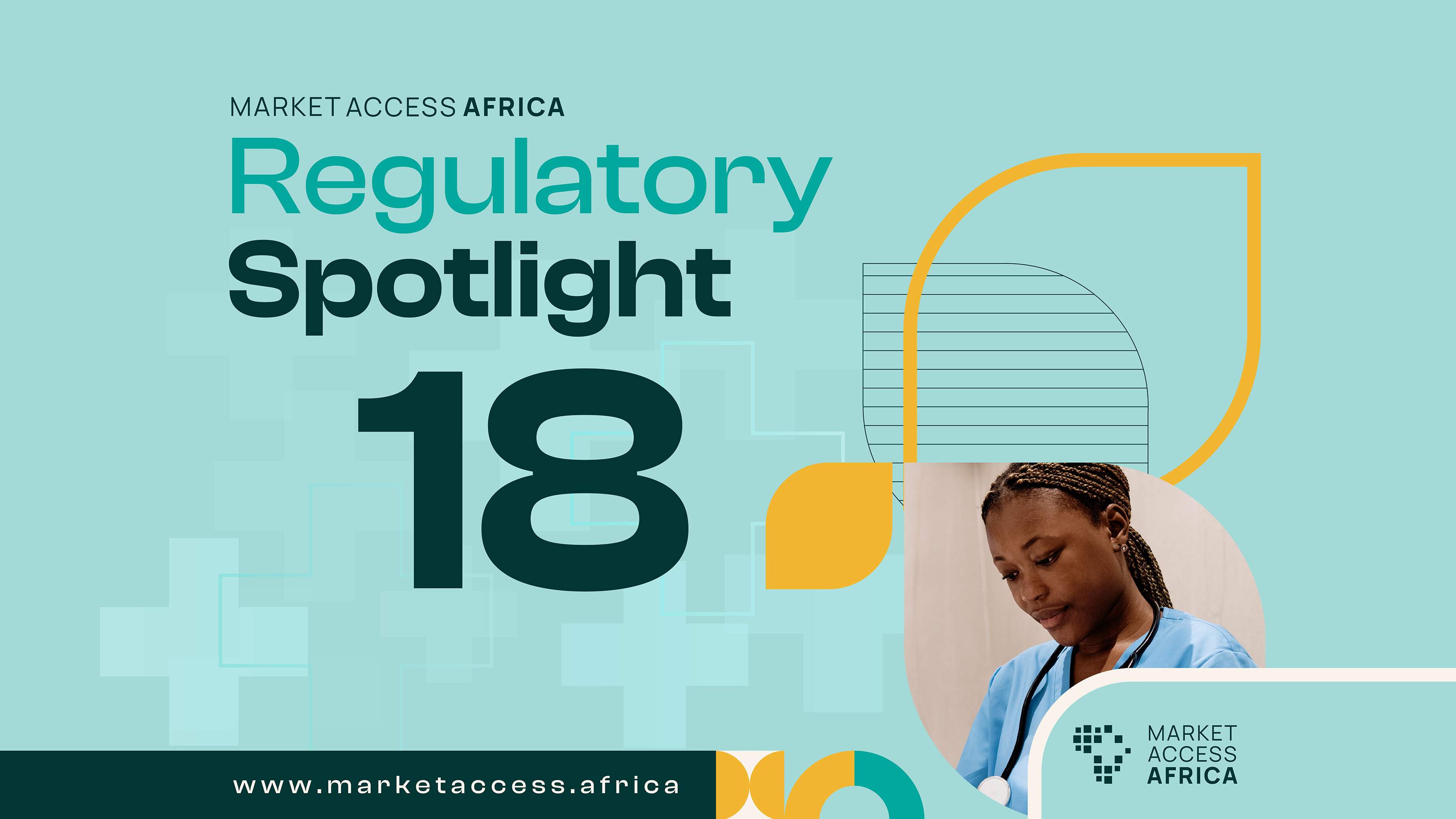
Showcasing the latest developments, news and updates from African national medicines regulatory authorities.
This edition of the Market Access Africa Regulatory Spotlight highlights key milestones in regulatory collaboration and capacity building across Africa. In Senegal, ARP hosted a delegation from Gambia’s Medicines Control Agency, while Nigeria’s NAFDAC maintained its WHO Maturity Level 3 status for medicines and vaccines. Botswana’s BoMRA also completed a WHO-assisted self-benchmarking exercise and hosted Burkina Faso’s ANRP to share expertise on digital regulatory systems.
Continental initiatives also gained momentum. The African Medicines Regulatory Harmonisation (AMRH) programme advanced the development of model regulations and strengthened the role of Regional Centres of Regulatory Excellence (RCOREs) during missions in Burkina Faso and other countries. In Kenya, discussions focused on integrating pharmacogenomics into clinical practice, while collaborative training sessions enhanced the capacity of regulators to monitor vaccine safety.
In Cape Town, the 4th Continental Joint Review of Mpox In Vitro Diagnostics (IVDs) marked a major step forward in accelerating Emergency Use Listings and supporting Africa CDC procurement. These collective efforts underscore Africa’s progress toward more harmonised, agile, and resilient regulatory systems that safeguard public health and enable timely access to quality medical products.
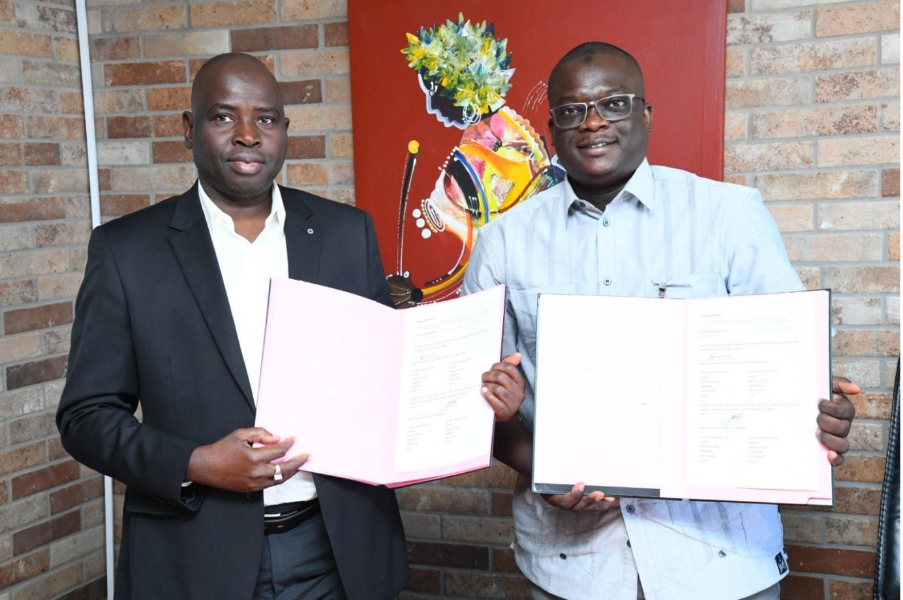
From 28 July to 2 August, 2025, the Senegalese Pharmaceutical Regulatory Agency (ARP) hosted a delegation from the Gambia Medicines Control Agency (MCA) for a study and exchange tour centred on good pharmaceutical practices.
The visit featured in-depth discussions on the roles and missions of both institutions, the interpretation of regulatory frameworks, and site visits, including to the ARP headquarters and its quality control laboratory.
The mission began with a meeting at the ARP conference room, chaired by Director General Dr. Alioune Ibnou Abou Talib Diouf, alongside his Gambian counterpart, Dr Issa Marena. The session included insightful presentations from Prof. Adama Diédhiou for Senegal and Mr. Tidjane Diallo and Mr. Baldé for the Gambian team, paving the way for rich and constructive exchanges.
These discussions fostered a stronger understanding of ongoing initiatives and underscored the shared priority of ensuring equitable access to safe, effective and affordable medicines for populations in both countries.
To solidify this commitment, the two agencies agreed to formalise their collaboration through a partnership agreement. This twinning initiative aims to strengthen collective efforts to address common pharmaceutical challenges, reinforcing regional solidarity and cooperation.
Why it matters: The agencies agreed to formalise collaboration through a partnership (“twinning”) to advance equitable access to safe, effective, and affordable medicines across both markets.
The National Agency for Food and Drug Administration and Control (NAFDAC) announced the maintenance of its World Health Organization (WHO) maturity level 3 status for the regulation of medicines and vaccines, effective 30 June 2025.
This recognition follows a formal WHO re-benchmarking exercise conducted in Abuja and Lagos from 25 - 29 November 2024, complemented by five follow-up Institutional Development Plan (IDP) meetings held between February and May 2025. These sessions assessed the progress of NAFDAC and the Pharmacists Council of Nigeria (PCN) in addressing key recommendations required for successful re-benchmarking.
The closure of all critical recommendations confirms that Nigeria operates a stable and integrated regulatory system for medicines and vaccines.
Work is ongoing towards achieving maturity level 4, with 27 of the 57 indicators already closed. Reaching ML4 and WHO Listed Authority (WLA) status would allow broader global trade of locally manufactured, NAFDAC-approved products and further strengthen public health and regulatory confidence.
NAFDAC’s full press release can be read here.
Why it matters: Sustained ML3 confirms a stable, integrated system. Progress to ML4/WLA would further unlock global market confidence in NAFDAC-approved products.
On 11 August 2025, the National Agency for Food and Drug Administration and Control (NAFDAC) and the United Nations World Food Programme (WFP) signed a Memorandum of Understanding (MoU) to strengthen collaboration on food safety and quality.
Prior to the signing, NAFDAC and WFP had already been working together, particularly in food fortification initiatives. The new MoU formalises this cooperation and sets a framework for joint efforts to ensure safe, high-quality food for populations in need, especially during emergencies and recovery efforts.
The agreement focuses on three core areas:
This partnership aims to streamline processes, share technical expertise and strengthen Nigeria’s food safety and quality systems in alignment with international standards.
The NAFDAC press release can be read here.
Why it matters: Clear processes and shared technical expertise strengthen emergency response and routine quality oversight.
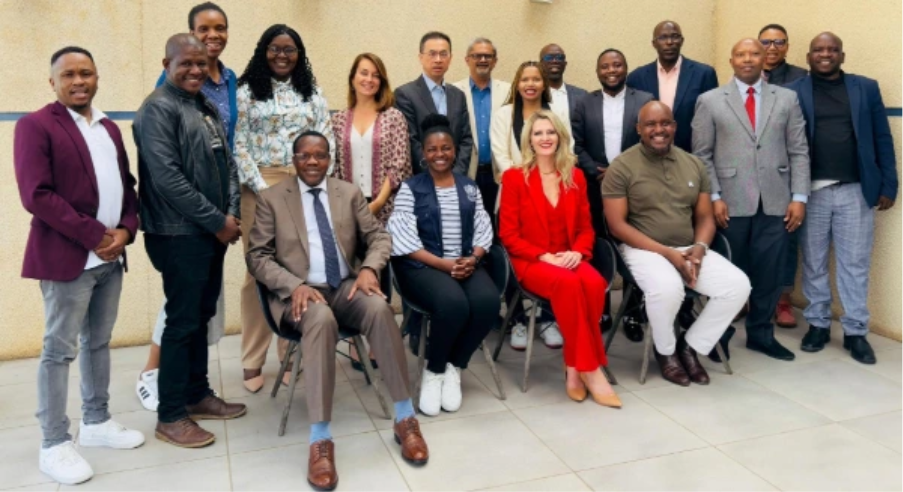
The Botswana Medicines Regulatory Authority (BoMRA) completed a five-day assisted self-benchmarking exercise with the support of the World Health Organization (WHO). The assessment, conducted using the WHO Global Benchmarking Tool (GBT), evaluated all regulatory functions to guide BoMRA’s progress towards achieving Maturity Level 3 (ML3), the international standard for a fully integrated and functional pharmaceutical regulatory system.
Achieving ML3 is a key milestone for Botswana, ensuring greater safety, quality and efficacy of medicines for the public. During the closing session, BoMRA Chief Executive Officer, Dr. Seima Dijeng, acknowledged the collaboration between WHO experts and the BoMRA team, emphasising the importance of understanding the status of the regulatory system, addressing identified gaps and sustaining efforts to enhance access to trusted medical products.
The assessment highlighted significant strengths, including strong political and governmental support, robust technical capacity and active engagement in regional and global regulatory platforms. Areas for improvement include increasing financial resources, strengthening the legal framework and expanding staffing levels to support the authority’s growing mandate.
This exercise marks a significant step in BoMRA’s ongoing efforts to align with international health standards and advance towards ML3, a notable achievement for an authority established only in 2018.
Why it matters: A key milestone for an agency founded in 2018, positioning Botswana to reach ML3 and improve assurance of safety, quality, and efficacy.
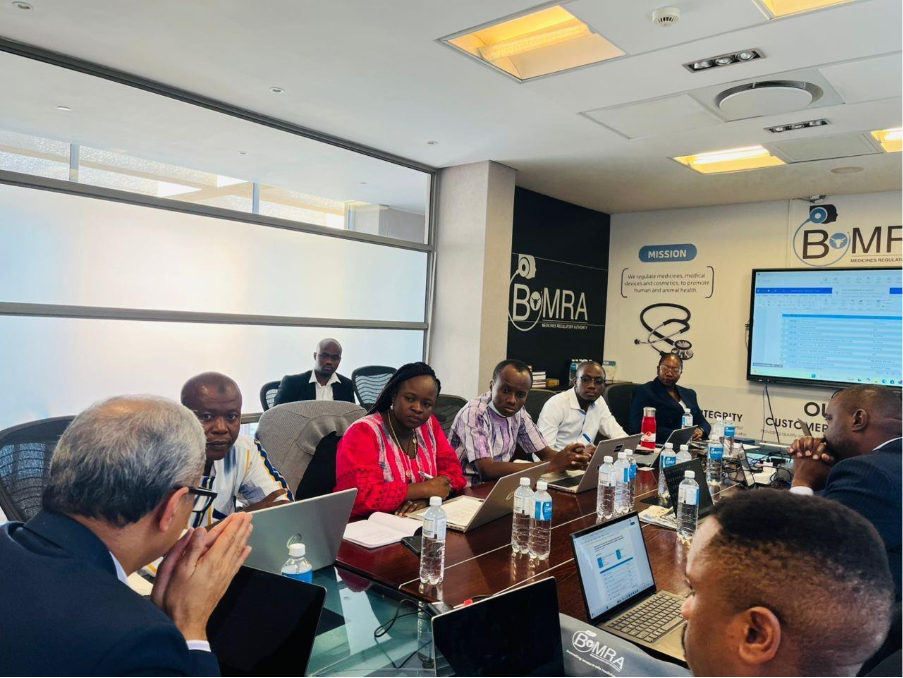
From 25-29 August 2025, the Botswana Medicines Regulatory Authority (BoMRA) hosted a delegation from Burkina Faso’s medicines regulator, ANRP, for a knowledge exchange visit.
The programme focused on BoMRA’s digital platforms, particularly the Botswana Regulatory Information Management System (BRIMS), which supports regulatory efficiency, data management, and regulatory harmonisation.
The visit also aimed to foster regional collaboration, enabling both authorities to share best practices and strengthen their digital capabilities to improve the regulation of medical products across their respective jurisdictions.
Why it matters: Cross-country learning accelerates digital transformation and regulatory harmonisation.
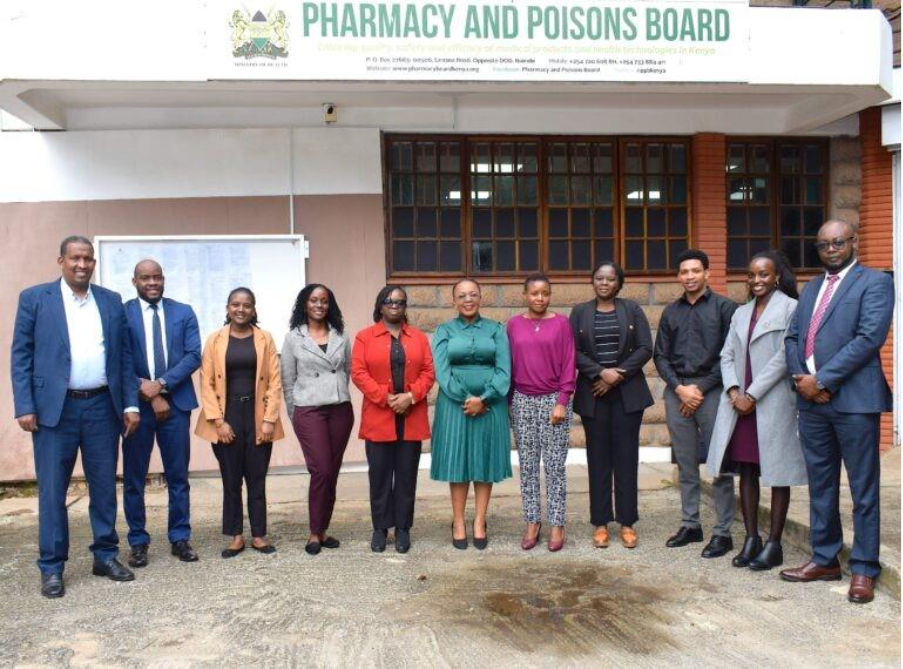
On 21 August 2025, the Pharmacy and Poisons Board (PPB) hosted Malawi’s Antimicrobial Resistance (AMR) Coordinating Committee, joined by representatives from the Kenya National Public Health Institute (KNHPI) and the East, Central and Southern Africa Health Community (ECSA-HC).
The visit, led by Dr Emmanuel Tanui of KNHPI, focused on knowledge sharing around Kenya’s Surveillance System for Antimicrobial Consumption (KESAC) and its role in addressing the challenges of AMR. Discussions centred on Kenya’s surveillance and stewardship strategies, aimed at strengthening multisectoral governance, promoting cross-country learning and enhancing regional collaboration.
Speaking on behalf of PPB CEO Dr. F. M. Siyoi, Dr Ali Arale, Chief Principal Regulatory Officer, highlighted the importance of monitoring antimicrobial consumption as part of broader efforts to combat the growing threat of AMR, noting that regional cooperation is essential to safeguarding public health.
Why it matters: Strengthening AMC surveillance and stewardship supports regional AMR governance and public health.
The South African Health Products Regulatory Authority (SAHPRA) is inviting stakeholders to provide comments on the updated SA Guide to Good Manufacturing Practice for Medicines (SAHPGL-INSP-02 v7).
The revision includes updates to Annexure 16, outlining country-specific requirements for key personnel appointments and competencies within GMP/GWP facilities.
The deadline for submitting comments is 22 November 2025. Comments should be submitted using the official comment form to:
The comment form and related documents can be accessed on SAHPRA’s website under Documents for Comments.
Why it matters: Stakeholder input shapes country-specific GMP/GWP expectations, fosters transparency and alignment with international practice.
The Egyptian Drug Authority (EDA) has announced the implementation of the unified registration file system (“One Submission”) for local human preparations under registration (CTD format) across all ministerial decisions, effective in two phases:
Conditions and Submission Process:
The One Submission system does not apply to products that have already been submitted for evaluation or analysis to any of the central departments of the EDA before these effective dates.
The full article can be accessed here.
Why it matters: Standardised filings streamline evaluation and timelines across departments.

Dr Ali Al-Ghamrawi, President of the Egyptian Drug Authority (EDA), met with H.E. Filio Hivendaka, Ambassador of Namibia to Egypt, to discuss strengthening cooperation between the EDA and the Namibian Medicines Regulatory Council (NMRC).
The meeting focused on potential areas of collaboration, including the exchange of regulatory expertise, capacity building, and the development of systems and frameworks to ensure the quality, safety and efficacy of medicines in both countries.
Dr Al-Ghamrawi expressed the EDA’s readiness to provide technical support through training programmes, workshops, specialised consultations and collaborative initiatives aimed at strengthening regulatory systems.
Ambassador Hivendaka acknowledged the EDA’s experience and leadership in pharmaceutical regulation and expressed Namibia’s interest in expanding technical cooperation, particularly in information exchange, regulatory capacity development and pharmaceutical policy advancement.
Both parties agreed on the importance of sustained institutional collaboration to address shared challenges and improve access to safe, effective and high-quality medicines in both markets.
Why it matters: South–South cooperation accelerates system strengthening and knowledge transfer.
Kenya hosts meeting on advancing pharmacogenomics in clinical practice in Africa
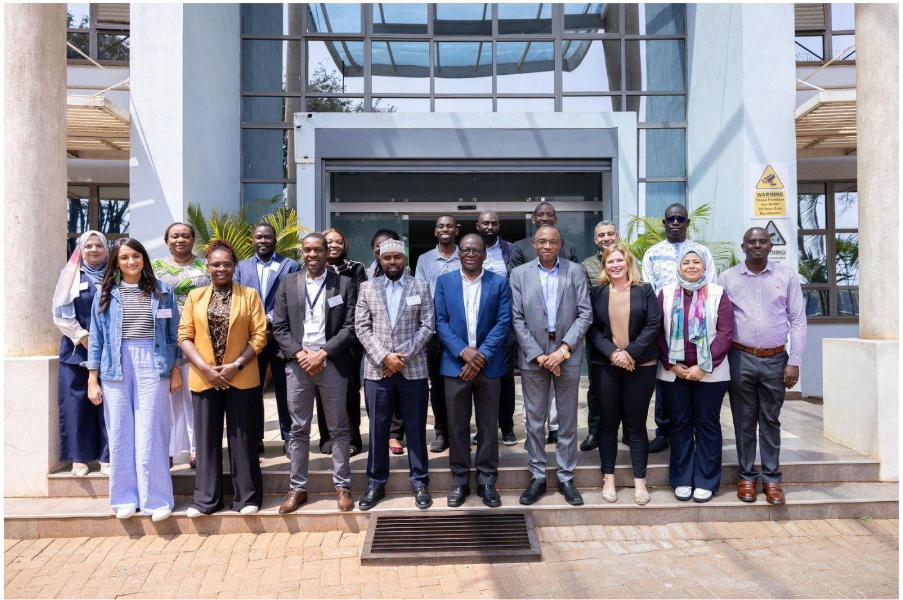
A meeting on the policy framework for integrating pharmacogenomics into clinical practice in Africa was held in Kenya, with participation from regulatory and health stakeholders across the continent.
The discussions focused on the impact of African genetic diversity on drug efficacy and safety, the development of regulatory frameworks and policies to support the integration of pharmacogenomics into healthcare systems, and strategies for collaboration among stakeholders to develop and implement clinical guidelines.
The meeting also highlighted the importance of strengthening pharmacovigilance systems to better monitor and understand the role of genetic variation in drug response, with the aim of improving treatment safety and effectiveness across Africa.
Why it matters: Tailored therapies and better benefit–risk decisions depend on genomics-informed systems.

The African Medicines Regulatory Harmonisation (AMRH) team carried out a Monitoring and Evaluation mission to Burkina Faso’s Agence Nationale de Régulation Pharmaceutique (ANRP) and the University of Ouagadougou, recently designated as a Regional Centre of Regulatory Excellence (RCORE) for clinical trials oversight.
The mission went beyond a routine assessment and served as a collaborative exercise to:
In addition to working with ANRP, the AMRH team engaged with key partners, including the University of Ouagadougou, the National Ethics Committee, and the West African Economic and Monetary Union (UEMOA) Secretariat, ensuring a comprehensive approach to strengthening regulatory systems.
Experts from the Ghana Food and Drugs Authority (FDA), home to one of Africa’s most advanced RCOREs for clinical trial oversight, joined the mission. Their peer-to-peer mentorship provided practical insights and demonstrated how excellence in one country can inspire progress across the continent.
Clinical trials serve as the bridge between medical innovation and patient access, making strong oversight essential for safety, ethical integrity, and impact. RCOREs are designed to build specialised regulatory capacity in Africa, setting high standards, training the next generation of regulators, fostering cross-border collaboration, and ensuring timely access to quality-assured, safe and efficacious medical products.
This mission followed similar engagements in Zimbabwe (April 2025) and Ghana (May 2025)
Why it matters: Strong clinical trial oversight bridges innovation and access, ensuring safety and ethical integrity across borders.

The Medicines Policy and Regulatory Reforms Technical Committee (MPRR TC) brought together experts from across Africa to strengthen medicines policy and regulatory systems. The Committee supports African Union (AU) Member States and Regional Economic Communities (RECs) in aligning national laws with the AU Model Law on Medical Products Regulation, advancing the African Medicines Agency (AMA) Treaty, and developing model regulations for medicines, medical devices (including In Vitro diagnostics [IVDs]), and blood and blood products.
Over the five-day meeting, delegates worked to finalise the Model Regulations for Medical Devices, review draft regulations for medicines and blood products, and validate the 2025 work plan.
Why it matters: Model regulations enable faster, more consistent national updates and clearer pathways for products.

The Ghana Food and Drugs Authority (FDA), in collaboration with the Infectious Diseases Institute (IDI) of Makerere University, Uganda, hosted representatives from six national regulatory authorities (Nigeria, Burkina Faso, Liberia, Sierra Leone, and the Sahrawi Republic) for a capacity-building programme. The training aimed to strengthen the ability of participants to identify and report Adverse Events Following Immunisation (AEFIs) and Adverse Events of Special Interest (AESIs).
Why it matters: Improved signal detection and reporting enhance vaccine safety across participating countries.
From 11-15 August 2025, regulators from across the African Union convened in Cape Town, South Africa, for the 4th Continental Joint Review of Mpox In-Vitro Diagnostics (IVDs). The meeting, held under the African Medicines Regulatory Harmonisation (AMRH) Medical Devices Assessment Technical Committee, brought together experts to conduct a rigorous review of Mpox diagnostic dossiers and performance data.
The Technical Committee is expediting Emergency Use Listings (EULs) to accelerate national regulatory decisions, support Africa Centres for Disease Control and Prevention (Africa CDC) procurement, and strengthen the foundation for coordinated, continent-wide regulatory action. This work extends beyond an emergency response, marking a key step in advancing IVD regulation in Africa and demonstrating the continent’s ability to deliver scientific rigour, efficiency, and collaboration in protecting public health.
Why it matters: Demonstrates continent-wide scientific rigour and coordination—beyond emergency response—while strengthening IVD regulatory pathways.
16 September – 25 November 2025 |IFPMA Africa Regulatory Conference |Advancing the clinical research ecosystem in Africa: Inclusive, innovative and impact-driven approaches | Online
29 September – 1 October 2025 |TOPRA Symposium | Berlin, Germany
6 – 17 October 2025 |15th Training Programme for Qualified Persons for Pharmacovigilance | Accra, Ghana
7 – 9 October 2025 | RAPS Convergence | Pittsburgh, USA
23 – 25 October 2025 | 4th International Conference on Public Health in Africa (CPHIA) | Durban, South Africa
11 – 13 November 2025 |Seventh Biennial Scientific Conference on Medical Products Regulation in Africa (SCoMRA VII) | Mombasa, Kenya
13 – 17 April 2026 | 20th International Conference of Drug Regulatory Authorities (ICDRA) | Saudi Arabia


